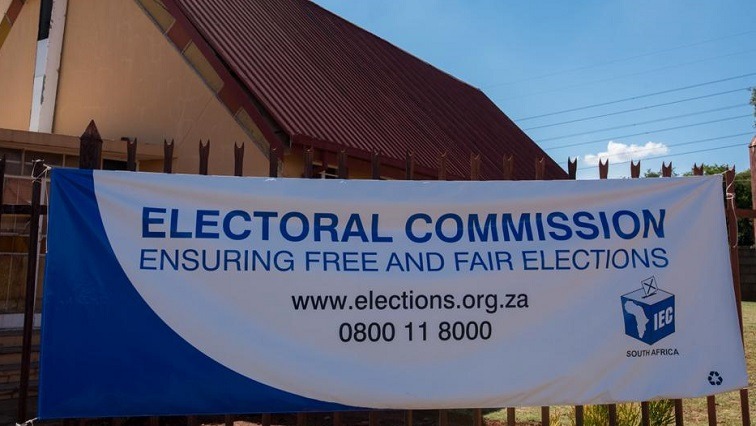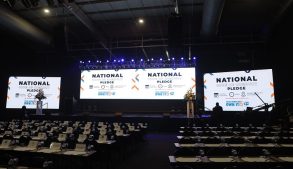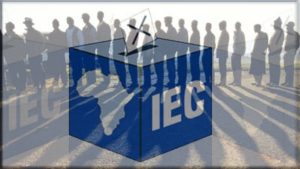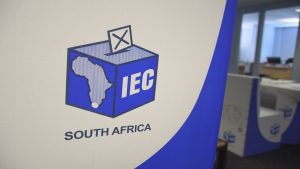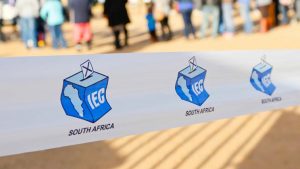As South Africa prepares for the 2024 National and Provincial Elections (NPE) to usher in the 7th democratic administration, stakes will be high for all political parties including the ruling party, the African National Congress (ANC), which has been in charge of the country for three decades.
For these elections, there are no less than 52 political parties that will be reflected on the dual-columned ballot paper, a first for South African elections.
On Thursday, 4 April 2024, the country witnessed another raft of political parties and newly included independent candidates pledging to the nation to abide by the Electoral Code of Conduct, to respect one another and to promote tolerance in the campaign space. The code requires parties and candidates to do the following:
- Speak out against political violence and threats against other parties, the Electoral Commission (IEC), members of the public and the media;
- Let the authorities know about planned marches or rallies;
- Communicate with other political parties about planned political events;
- Recognise the authority of the IEC;
- Work with the IEC structures and allow them to perform their duties; with the police in their investigation of election crime and violence; and
- Accept the results of the election or challenge the result in court.
Like previous signing ceremonies, the event was a symbolic gesture signalling a commitment to democratic principles and a fair electoral process.
It helps build confidence among voters, political actors, and international observers that the election will be conducted in a free and fair manner.
It doesn’t always happen in other African countries that the elections can go ahead without bloodshed, arrest of opposition politicians, and violent protests but South Africa has been exemplary for 30 years and we remember the unity visit to the 1994 Zion Christian Church (ZCC) Easter Conference in Moria by the fathers of our democracy Nelson Mandela (ANC), Clarence Makwetu PAC), FW De Klerk (NP) and Mangosuthu Buthelezi (IFP), whom under one roof, pledged for peace and stability of the nation during and post elections.
It is highly commendable that 30 years on, their spirit lives with our present-day leaders of political parties who still subscribe to the ethos of free and fair elections.
Since the proclamation of the May 29, 2024, election day on 23 February, which signalled the enforcement of the Electoral Code of Conduct, the country has not witnessed any major electoral challenges or violence.
The rivalry and insults amongst politicians and their supporters on social media have not translated into anything major on the ground, it’s a healthy competition in South African politics and that’s why we must embrace and applaud our political leaders and the IEC for working together protecting the nation from mayhem we see in other parts of the world in every round of elections.
The IEC revealed that 400 National Assembly seats will be contested by 52 political parties, a voters’ roll with a record number of 27.78 million people, a combined 887 seats up for grabs nationally and in provinces.
It is expected that over 80 000 ballot papers will be printed for distribution in over 23 000 voting stations and the IEC has promised strict handling of this resource pre and post-elections to avoid damaging speculations as it happened in the past when marked ballot papers were allegedly found dumped in Alexandra Township post-election day.
An act that nearly infuriated the locals and allegations of vote rigging were flying around on social media platforms until the IEC clarified the origin and cause of the unfortunate incident.
Chief Electoral Officer, Sy Mamabolo also reminded the nation about the important job done by the media as they continue to inform and educate the voters about changes in electoral processes and political party choices. Mamabolo told the nation that the safety of journalists during this campaign period is the responsibility of both political parties and the commission:
“We urge political role players to respect the vital role of the media in the information ecosystem. The safety of journalists is our joint responsibility. Without a well-informed citizenry, our desired objective of a credible election is rendered a nullity”.
This statement sends a sense of belonging and gives journalist strength to continue informing the nation knowing that the political role-players respect their trade.
South Africans will be happy to know that those who violate the Electoral Code of Conduct, consequently putting the stability of the nation in danger will be guilty of a crime and can be fined or sent to jail for up to 10 years. This also applies to political parties as they can be fined, stopped from working in an area where the violation happened, or have their votes in the area cancelled.
So, it is not ideal for any individual be it individuals or political party supporters to engage in political intolerance and incitement of violence to score political favours.
SABC News Specialist Researcher, Maswele Ralebona


